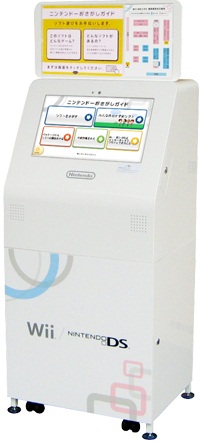Difference between revisions of "Talk:Nintendo Zone"
m |
|||
| Line 31: | Line 31: | ||
::: Paste your script then. --[[User:Yellows8|Yellows8]] 17:35, 11 December 2014 (CET) | ::: Paste your script then. --[[User:Yellows8|Yellows8]] 17:35, 11 December 2014 (CET) | ||
:::: | :::: | ||
| + | { | ||
#!/usr/bin/perl | #!/usr/bin/perl | ||
use strict; | use strict; | ||
| Line 50: | Line 51: | ||
} | } | ||
close INFILE; | close INFILE; | ||
| + | } | ||
Will open file specified as a parameter and print the result with base64 decoded strings and key date inf hex string format. --[[User:Duke srg|Duke srg]] 18:18, 11 December 2014 (CET) | Will open file specified as a parameter and print the result with base64 decoded strings and key date inf hex string format. --[[User:Duke srg|Duke srg]] 18:18, 11 December 2014 (CET) | ||
Revision as of 19:19, 11 December 2014
--Yellows8 03:58, 9 June 2011 (CEST) If there's an USA Best Buy NZone nearby you and you can either capture it via laptop or have a DS /w flashcard, /msg yellows8 on IRC EFnet #3dsdev. Note that it's extremely unlikely NZone is exploitable since with DSi all comms were HTTPS,(let alone 3DS uses a NetFront version without the old html parsing bugs) this is just for accessing the server at home from both 3DS and laptop.
- Yellows8 19:36, 10 June 2011 (CEST) Some NZone captures were obtained, no more captures are needed.
Some kind of Nintendo Information Terminals use Windows Server 2008?,Vista or 7.
I saw a terminal returned Internet Explorer's error code.--Matyapiro31 04:19, 6 February 2012 (CET)
- Huh? The USA NZone server uses Apache. "Server: Apache/2.2.16 (Unix)" --Yellows8 04:26, 6 February 2012 (CET)
I explain about "ニンテンドーおさがしガイド" in Japan.
- You mentioned "NZone server" in your edit summary, those terminals are *not* servers. --Yellows8 20:06, 6 February 2012 (CET)
-- The Cloud WiFi --
Can be "WiFi Zone - The Cloud" also (based on https://www.thecloud.net/free-wifi/support/faqs/) --Elisherer 16:34, 25 April 2012 (CEST)
--LuigiBlood 20:27, 25 April 2012 (CEST) A friend of mine (Prof. 9) recently tested "_The Cloud" as SSID, and it works, and has access to the Europe Nintendo Zone. MAC filtering can be enabled.
"_The Cloud" SSID is still usable by european consoles without a beacon, but was deleted from the list --Duke srg 07:53, 14 May 2012 (CEST) On the other hand, some hotspots from a list is not usable without a beacon at least. --Duke srg 22:14, 14 May 2012 (CEST)
hotspot.conf for fw9
Is it possible to get hotspot.conf from fw9? Really need this one to maintain the homepass scripts --Duke srg 08:22, 14 October 2014 (CEST) Any chance hotspot.conf info will be updated with fw 9.3 changes? --Duke srg 21:28, 9 December 2014 (CET)
- I thought of doing some sort of hotspot.conf parser which would be located somewhere under [1], with certain data stripped out, but I haven't bothered yet(upload hotspot.conf files myself -> server lets the site visitors see the extracted data). --Yellows8 22:44, 10 December 2014 (CET)
- I already have the parser in Perl with the exact BASE64 alphabet sequence and able to host the decoder online or provide it for you to use on that host. I actually do not have any exploitable or dev unit to rip the actual data. As long as I manintan one of the homepass script implementation I always need the up to date hotspot list with the flags. Diff patch from the previous version will be enough --Duke srg 10:50, 11 December 2014 (CET)
- Paste your script then. --Yellows8 17:35, 11 December 2014 (CET)
- Paste your script then. --Yellows8 17:35, 11 December 2014 (CET)
- I already have the parser in Perl with the exact BASE64 alphabet sequence and able to host the decoder online or provide it for you to use on that host. I actually do not have any exploitable or dev unit to rip the actual data. As long as I manintan one of the homepass script implementation I always need the up to date hotspot list with the flags. Diff patch from the previous version will be enough --Duke srg 10:50, 11 December 2014 (CET)
{
- !/usr/bin/perl
use strict; use MIME::Base64 qw( decode_base64 ); open INFILE,$ARGV[0] or die; my @res; while (<INFILE>) {
if ($_ =~ /.*,\d,\d$/) {
@res = split(',',$_);
$res[3] =~ s/\./+/gs;
$res[3] =~ s/-/\//gs;
$res[3] =~ s/\*/=/gs;
$res[3] = decode_base64($res[3]);
$res[3] =~ s/(.)/sprintf("%02X",ord($1))/egs;
printf "%s,%s,%s,%s", decode_base64(shift(@res)),decode_base64(shift(@res)),decode_base64(shift(@res)),join(',',@res);
}else{
print $_
}
} close INFILE; } Will open file specified as a parameter and print the result with base64 decoded strings and key date inf hex string format. --Duke srg 18:18, 11 December 2014 (CET)
